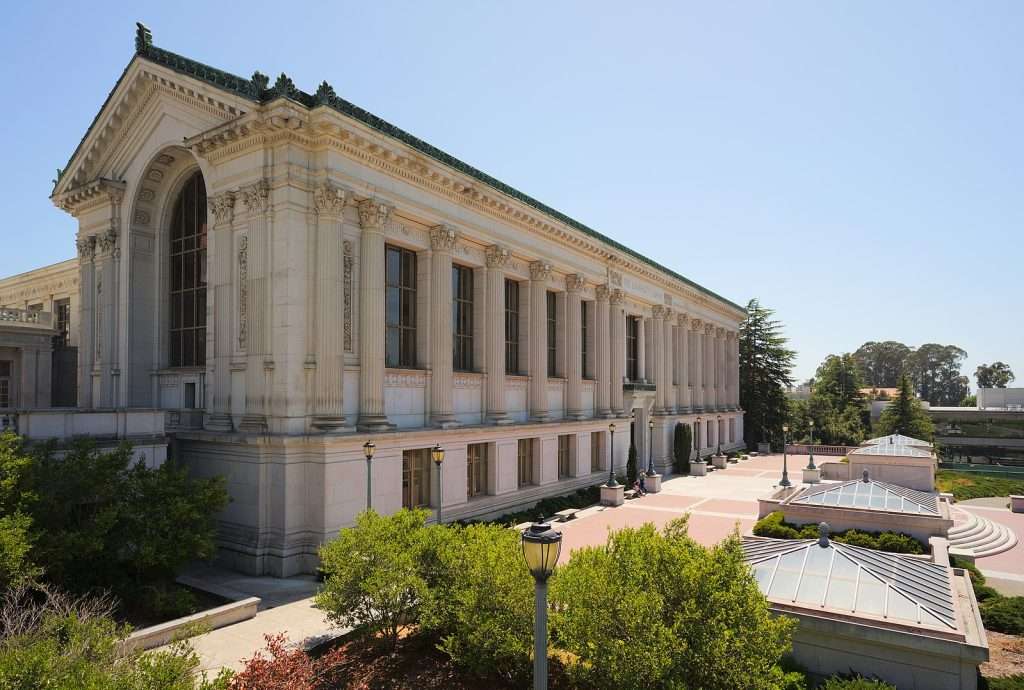College Intel
University of California, Berkeley Admissions

The spirit of the University of California, Berkeley is dynamic and enduring. What was once a relatively small college for Northern California’s elite became the unofficial flagship campus for the University of California system, expanding in size and scope in the late nineteenth and early twentieth century. Berkeley soon emerged as a hub of activism and counterculture by the 1960s and 70s, serving as the site of one of the most influential student protests in U.S. history, the Free Speech Movement. Since then, Berkeley has pivoted yet again into the role of major research university. The university has been responsible for major innovations and discoveries in STEM, cementing its status as arguably the best public university in the nation.
Berkeley faculty have been honored with 33 Nobel Prizes, 12 Turing Awards, 6 Academy Awards, 13 Fields Medals, and 10 Pulitzer Prizes, while Berkeley’s roster of alumni include Apple co-founder Steve Wozniak, Google executive Eric Schmidt, actor John Cho, and former Governor of Michigan and U.S. Secretary of Energy Jennifer Granholm.
With 32,500 undergraduates and 12,800 postgraduates, the Berkeley community is large and lively. Undergraduates enroll in the Haas School of Business, the College of Chemistry, the College of Engineering, the College of Environmental Design, the College of Letters and Science, and the Rausser College of Natural Resources to receive their bachelor’s. Unlike other elite institutions of its caliber, Berkeley’s first school was not the College of Letters and Science (established in 1915), but in fact the College of Chemistry (established in 1872). The university’s historical focus on chemistry and chemical engineering is reflected in the national renown of those departments today.
The core curriculum at Berkeley is set by UC-wide requirements in “entry level writing” and “American History and American Institutions,” which are typically fulfilled prior to enrollment with placement exams. Additionally, coursework in “American Cultures” to “critically engage in important issues” such as “race, culture, and ethnicity in the context of American society” is required of all students. Further curricular requirements are set within each school and department.
Berkeley was originally founded in 1868 as the “University of California” in Oakland. Within a year of its inception, the fledgling university became co-educational and moved to its current location in Berkeley, California. Other campuses in the UC system were originally offshoots of Berkeley, including the University Farm near Sacramento that would become UC Davis and the Los Angeles State Normal School that would turn into UCLA. By World War II, Berkeley faculty had discovered 16 chemical elements, more than any other university in the world. This reputation for scientific discovery led to Berkeley serving a major role in the war effort through the Manhattan Project. Professor J. Robert Oppenheimer, “the father of the atomic bomb,” was named the scientific head of the project.
Today, the R1 research university receives over $1 billion in annual research funding and houses such labs and institutes as the Space Sciences Lab, the Lawrence Berkeley National Laboratory, the Institute of International Studies, and the Center for the Built Environment.
Student life on campus is marked by a longstanding athletic rivalry with Stanford University across the Bay, CalTV, the student-run TV station, a small but mighty Greek life scene, and a healthy offering of cultural, political and activist groups who carry on the Berkeley tradition of civic engagement.
A record-breaking 125,922 students applied to be a part of Berkeley’s Class of 2027. 14,772 were offered admission, bringing the acceptance rate down to a historically low 11.2%. The Berkeley Office of Undergraduate Admissions highlights that “UC Berkeley pioneered the holistic review process at UC (now adapted by most of the UC campuses).” This holistic review process is responsible for a student body that combines the achievement of the Ivy League, the research prowess of MIT or CalTech, and the diversity of a large public institution. With acceptance rates likely to continue to decline, turning to Ivy Coach to help craft the strongest application possible is a wise move for those who can’t wait to root for the Golden Bears!
TOWARD THE CONQUEST OF ADMISSION
If you’re interested in Ivy Coach’s college counseling, fill out our complimentary consultation form and we’ll be in touch.
Get Started